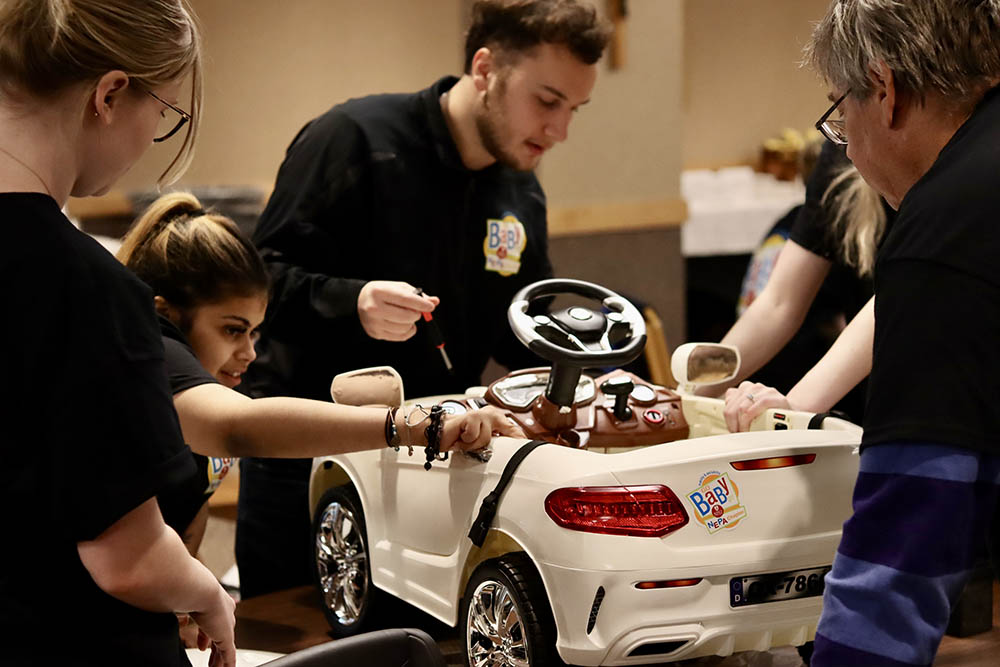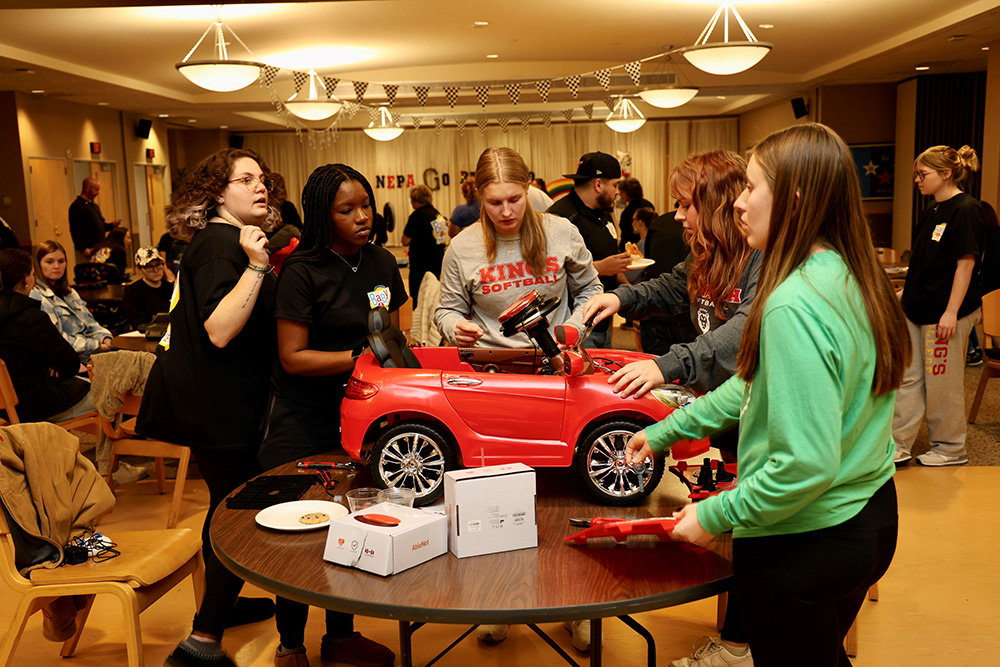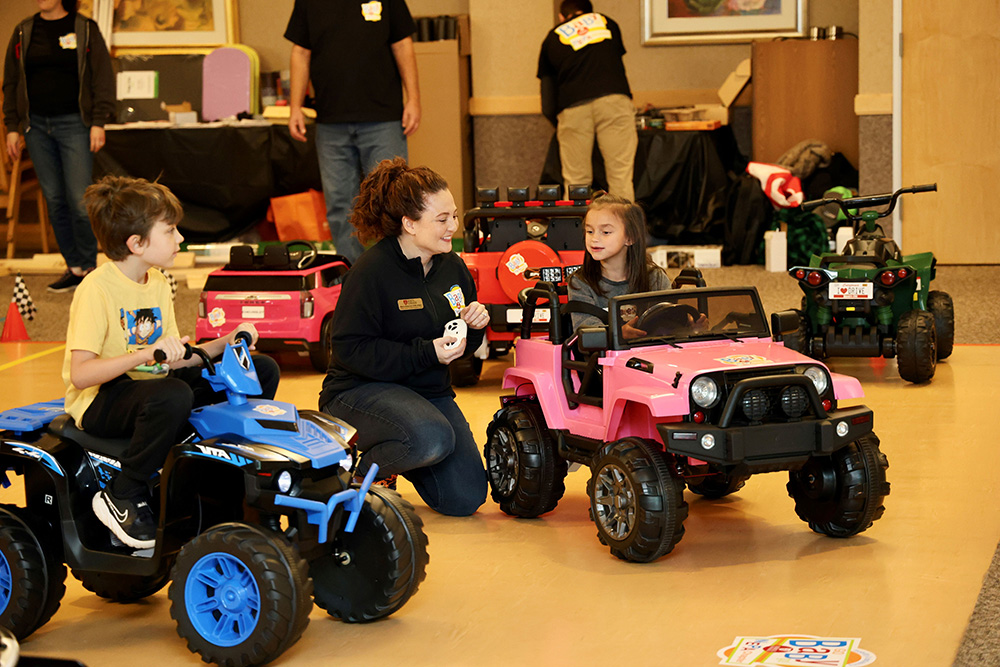Wilkes-Barre, Pa.— King’s College just launched the Northeastern Pennsylvania chapter of “Go Baby Go,” a nation-wide initiative that modifies battery-powered toy vehicles so children with disabilities can move independently and socialize more easily with other children.
More than 50 volunteers came to the Sheehy-Farmer Campus Center on Saturday, Nov. 4, 2023, to prepare two dozen toy vehicles for use by children with disabilities. The event concluded with a play group and obstacle course for a child who used her custom vehicle for the first time.

NEPA Go Baby Go originated with occupational therapy doctoral student Erika Golik, who pursued a local chapter for her capstone project. She is joined by faculty advisors Dr. Jennifer Dessoye, chair of the occupational therapy department, as well occupational therapy professors Dr. Marie Patterson and Elizabeth A. Dixon. Dr. Paul Lamore, chair of the engineering department, was there to certify the vehicles were ready to operate.
The first build day was made possible with a $20,000 donation from the Moses Taylor Foundation to purchase vehicles and modification materials.

Volunteers included occupational therapy and engineering students from King’s College, as well as students from surrounding universities.
NEPA Go Baby Go is seeking volunteers from community and student groups throughout Northeastern Pennsylvania, as well as any children in need of mobility assistance. The team aims to host build days at least twice a year and child playgroups two to three times a semester.
To volunteer or donate funds for future events, visit the NEPA Go Baby Go Chapter page here.

Go Baby Go was created by Dr. James Cole Galloway of the University of Delaware to foster physical, cognitive, and social development in children with mobility issues. The project assists children with limited mobility resulting from arthrogryposis, muscular dystrophy, cerebral palsy, down syndrome, congenital heart defects and other conditions.
The effort has now expanded to more than 40 communities around the world.
There are no commercially available devices for children with mobility issues and power wheelchairs are expensive and less accessible to younger children. Instead, Go Baby Go volunteers adjust a toy vehicle’s power and steering so it can be controlled by children with limited movement. They also add padding, PVC pipes, and other materials to keep the children comfortable and upright while they ride. Certified engineers and occupational therapists ensure each vehicle is safe and adapted to a child’s unique needs.
